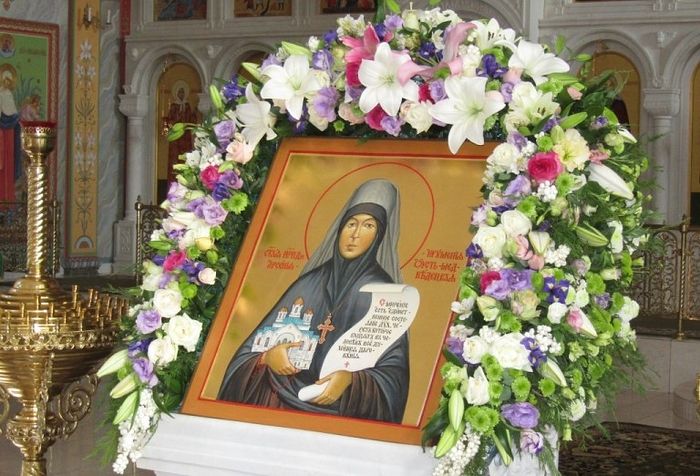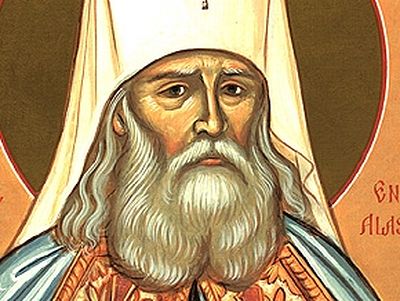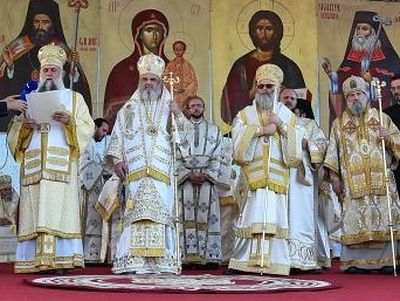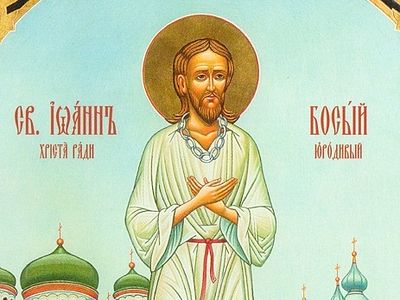Serafimovich, November 14, 2016

Humility is the sole state of the soul through which all the spiritual gifts come to a man. It is a door which opens the heart and makes it capable of spiritual feelings. Humility brings to the heart an unflappable tranquility, to the mind—peace, to the thoughts—attentiveness. Humility is a strength enveloping the heart, alienating it from all earthly things, granting it comprehension of the feeling of eternal life, which cannot sprout in the heart of the fleshly man. Humility gives the mind its original purity. It begins to clearly see the difference between good and evil in everything, and knows the name of every state and movement of the soul within itself, as the first-created Adam named the animals according to the characteristics which he saw in them. Humility relies on the seal of silence in all that is human, and the spirit of man stands before the Lord in prayer in this silence, heeding His words… Without the feeling of humility in the heart, there can be no pure, spiritual prayer. St. Arsenia (Sebryakova)
A celebration in honor of the inclusion of Venerable Arsenia into the ranks of locally-venerated saints was held in the Ust-Medveditsky Holy Transfiguration Monastery. Around 5,000 people took part on November 12 and 13, reports the site of the Volgograd diocese.
Services were practically continuous in the monastery’s main church, with some parallel services in the lower church of St. Arsenios the Great, that as many faithful as possible could pray and commune during the festive days.
After midnight the All-Night Vigil flowed into the Liturgy, several of which were served in the festive schedule: at 4:00 in the Kazan Cathedral, and at 7:00 in the lower church.
The hierarchical Liturgy began at 10:00 in the Kazan Cathedral with the rite of glorification of St. Arsenia of Ust-Medveditsky, celebrated by Metropolitan Herman of Volgograd and Kamyshin along with Bishop Elisha of Novoanninsk and Uryupinsk, Bishop John of Kalachev and Pallosovsk, Archbishop Justinian of Elista and Kalmykia, Bishop Tarasia of Balashov and Rtischevskiy, and Bishop Sergius of Borisoglebsk and Buturlinovka.
In all, about eighty clerical representatives of the Volgograd Diocese and other dioceses of Russia, Georgia, Greece, and Ukraine participated in the festive Divine services. The Liturgy was attended by the governor of the Volgograd region Andrei Bocharov.
An icon of Venerable Arsenia was painted for the festival in a Moscow workshop by order of the monastery. A troparion, kontakion, and magnification were composed for St. Arsenia of Ust-Medveditsky’s glorification, which were performed by the men’s choir of the Kiev Caves Lavra. The choir of the Sion Cathedral in Tbilisi also participated in the services.
Those who could not fit into the Kazan and Arseny churches watched the services on large plasma screens set up on the territory and outside the fence of the monastery.
Preparation for receiving guests to the monastery began immediately after receiving the news of the Holy Synod’s decision on October 21 to canonize the fifth and most famous saint in the history of the Ust-Medveditsky Holy Transfiguration Monastery, Abbess Arsenia (Sebryakova).
Abbess Arsenia (1833-1905) came from the notable family of the Lieutenant-Captain and treasurer of the Don Cossacks Michael Vasilievich Sebryakov. At the age of seventeen Anna Michailova entered the Ust-Medveditsky Monastery of her own accord. The monastery reached its highest peak in the years of her abbacy, from 1864 until her repose.
Besides her educational and charitable activities, the main fruits of Venerable Arsenia’s labors were the Kazan Cathedral, which was erected from 1785 to 1885, and the famous caves, dug in the image of the Kiev Caves. Today the monastery’s main shrine is there—the miraculous stone slab with hand and knee imprints of people kneeling in prayer.
Quotes of St. Arsenia:
—It is impossible to acquire pure, undivided prayer if it’s not preceded by selfless acts. But we must daily believe or affirm in our heart the dispensation to reject every act, word, feeling, or thought that is unpleasing to the Lord, to direct every deed according to the commandments of God, to educate every feeling with His word, and direct every though by His truth. In such activity, or at least in the purpose of such activity every alien feeling or thought entering into the soul should be examined and prayerfully rejected from the soul. With such inclination of soul the Name of Jesus autocratically acts in it and severs every thought contrary to Itself, removes every feeling not pleasing to It, and illumines the soul with knowledge of His will, settling in it peace of heart and stillness of thoughts.
—Transgressing the commandments of God, we sin before God and before men and before our own conscience, and we come not only under the judgment of God, but under human judgment. Offending the Lord, dishonoring His glory in ourselves and by ourselves, we constantly harm our loved ones, tempting them, luring them into sin, giving them an example of a sinful life, not giving them their due for our common welfare on the path to salvation, and in all truth, we hand people over to judgment. This judgment, expressing itself in condemnation, slander, defamation, hatred and all deeds coming from such an attitude within us, is a kind of persecution, torture, and death—we must receive this as a worthy recompense and always feel ourselves debtors before others.
—The unrelenting path of salvation is brutal sometimes and the word expressed about it is a two-edged sword, cutting our passions, our sensuality, and together with that it causes pain in our very heart, from which they are excised. And will there be a time when this sword has no more work in our heart? No, it will always have work, there is no end to spiritual purification, and in every heart there is a particle of impurity which must be cleansed. I recognize in myself a clear sign of negligence, when my heart ceases to ache and fight—it’s a sign of serious obscuration. When this darkness is dispersed by the word of God, then the heart aches, but without pain the soul cannot be illumined—it would be dreaming.



